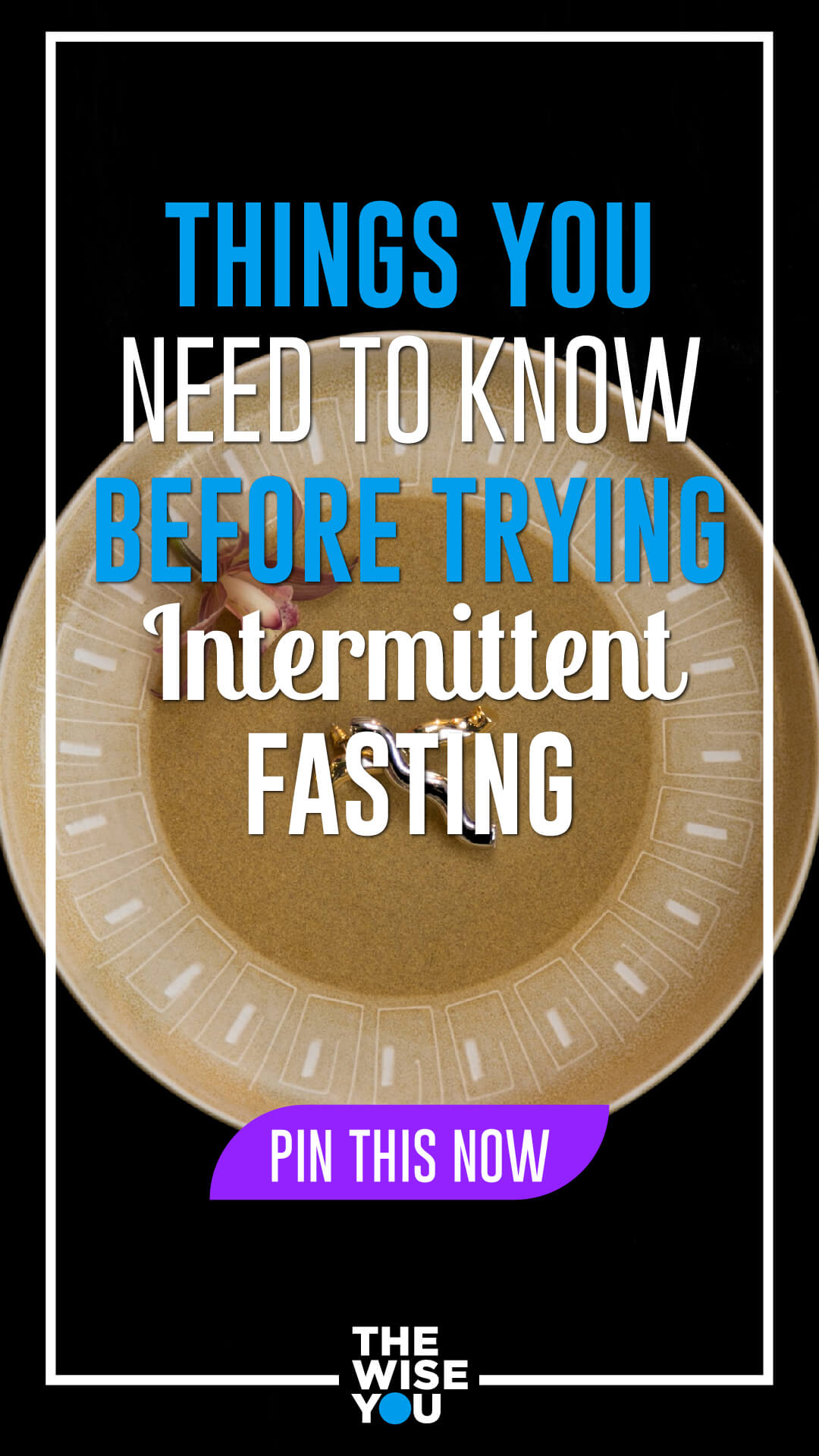Many persons are very much interested in beginning intermittent fasting with little or no knowledge about the effect that surrounds it. The idea behind intermittent fasting is to basically limit the amount of food you consume as well as control and benefit from the hormonal and cellular benefits that fasting brings. No doubt, this approach has been recorded to have a series of positive health outcomes, but there have also been episodes of negative implications that are associated with intermittent fasting. Due to the outcomes involved, it is one of the crucial reasons why you have to get a clearer explanation of what intermittent fasting is, the benefits and costs, and other important consequences that are attached to it before you start the practice.
What is intermittent fasting?
Intermittent fasting is a kind of eating schedule that directs the time period when a person chooses to eat and the period for food abstinence. That is, it is an eating pattern that spells out the period of fasting and eating. In simple terms, it is a deliberate action taken by you to skip your dishes in order to consume calories. This is a practice that is as old as man; human engagement in fasting could be traced to human evolution when he sought food in the dense forest before eating in climes when it is carried out for reasons primarily to stabilize the religious, economic, political, and socio-cultural institutions.
Ways to do intermittent fasting
There are different types of intermittent fasting which are Time-restricted eating and Alternate Day Fasting. The first focuses on restricting yourself from consuming your meal for certain hours in a day. It could be fasting from 12 am to 12 pm and thereafter start the diet from that time till your dinner. The other kind, alternate-day fasting, is a situation where you don’t eat on some days. It could be the 5:2 ratio which is eating according to your usual routine for 5 days but sparing 2 days for fasting.
There are several other ways you could practice intermittent fasting apart from the two mentioned above.
Eat-Stop-Eat:
This is done by fasting for 24-hours once or twice in a week. It could come in the form of you fasting from morning to morning, afternoon to afternoon, or night to night.
The Warrior Diet:
This involves not eating all day and later consuming a huge morsel of food at night. During the day, we could eat a small number of fruits to sustain us.
Spontaneous Meal Skipping:
This kind of intermittent fasting is focused on skipping your meal from time to time and may be due to you not being hungry or you being too busy to eat.
Do you intend to try intermittent fasting in order to lose weight and fix your lifestyle? It is indeed a good eating scheme that aids a healthy life and it will give the appropriateness that you crave to have for your body shape. Although this might not come so easily for you when it comes to cutting down the amount of food you consume daily, it is a well-known fitness technique that will help shape you mentally and physically.
What are the effects of intermittent fasting to the body system?
With the adoption of intermittent fasting, it will help your body system react proportionately to a period of feasting and moderate your body size. The effects of intermittent fasting come in two phases—positive and negative implications—which you should give utmost attention to before you adopt it.
The positive effects of intermittent fasting include:
● It brings a change within the physiological structure of the human body—the cells, genes, and hormones. The changes that occur include the reduction of insulin which facilitates the burning of fat, removal of dirty materials from the cell, and the protection of molecules from diseases.
● In enhancing the hormonal function, it helps in losing weight and belly fat.
● It helps in the reduction of sugar levels which invariably protect you from diabetes.
● Intermittent fasting stirs the reduction of the sugar level, oxidative stress, and inflammation within the human body which creates room for a healthy brain.
● With the reduction of cholesterol, blood sugar, and inflammatory marks, it improves the health and function of the heart.
The negative effects are as follows:
● Intermittent fasting has a high tendency of making you feel tired and groggy. You lose a huge amount of energy to carry out your daily duties.
● When one abstains from eating, there’s a likelihood of the person being dehydrated because when one doesn’t eat they sometimes do not remember to drink.
Some studies have unveiled that the adverse effect differs in sexes. Aside from the positive effects that are present in both sexes, it is advisable for women to have less time of intermittent fasting and for the following set of women with such conditions to completely avert intermittent fasting:
● Pregnant women
● Women with records of disordered eating
● Women who are defiantly stressed
● Women who barely sleep well
Should you still consider trying intermittent fasting?
The consideration of the effects that revolve around intermittent fasting should be the basis for your go-ahead step. You should try to compare the weightiness of the positive effects on the negative impacts before you begin intermittent fasting. Aside from the consideration given to the effects that are peculiar to intermittent fasting, it is cogent to state that you pay attention to the supplementary margin that intermittent fasting contributes to our lives such as:
1. The simplification of our day: Rather than the long hours used in preparing, eating, or packing your meal, it could be redirected to other activities and by so doing, you skip the hours that you ought to have spent in making your delicacies. This is principally simplifying your daily routine and opening doors for other duties to be achieved. You could use such periods for reading, exercising, or for your job.
2. Humans, regardless of the multifaceted responsibilities that they are to meet, strive for a healthy life at all times. Intermittent fasting prevents the body system from contracting diseases like Alzheimer’s, dementia, and Parkinson’s. This often boosts the level of brain functioning.
Is it possible to build one’s muscles during intermittent fasting?
Intermittent fasting does not deprive you of building your muscle, although it contributes to weight reduction. Some researchers recommend the consumption of Branched Chain Amino Acids (BCAA’s) that serves as a supplement to muscle building. This is a good technique but apart from consuming BCAA, we can indulge in other activities such as push-ups, pull-ups, dips, bench-pressing, and others. Note: This should be done during your eating period when your strength can sustain you. Also, you could adopt the workout routine that helps in building your muscles.
Tips to having a successful intermittent fasting
Take a walk-out in the morning
This is a helpful trick that assists you in freeing your mind from torrents of thoughts that could make you fail the fasting. You know those moments when you wake and the first thing that comes up in your mind is to quickly get yourself in the kitchen? With you taking a walk-out in the morning, it relieves you from such thoughts and stabilizes your mind for the other daily routine that will follow.
1. Don’t freak out:
Try to avoid being worried about your ability to fast for eight hours. The more you create room for worries the more you are prone to fail in having a smooth fasting. “Won’t I suffocate? Can I withstand fasting for one day?” Wash away such thoughts from your heart and you will see yourself building intermittent fasting into your daily routine.
2. Try to understand your body system:
Before you embark on intermittent fasting, it is important to understand your body system for that day. If you sense that you won’t be able to face it to the core, it is crucial then to let go until a day you feel strong. If you feel you are unable to fast for 16 hours, you could reduce the number of hours to perhaps 8 hours.
3. Stay busy at all:
Are you wondering how staying busy could help you have successful intermittent fasting? A mind that is not preoccupied with an activity is susceptible to think of eating. When you’re less busy or not doing anything at all, the willingness to eat slides into your mind when you find yourself feeling hungry. Therefore, it is very germane to keep you busy in order to drive away the thoughts of you wanting to eat.
4. Eat better foods during your eating period:
No doubt, intermittent fasting ushers us a volume of benefits such as loss of weight, the increase of insulin sensitivity, and many other positive effects—but our abilities to normalize intermittent fasting in our routine is dependent on the kinds of foods we eat during our eating period. If we are energized with healthy meals and fruits, this will provide us with the strength to continue the fasting; be it time-restricted or alternate-day fasting.
Intermittent fasting is a fascinating style of losing weight that is beneficial to the brain and body system of humans, and it is an encouraging routine for all. With the above discourse, I hope clarification made herein has added to your little knowledge of what effects surround intermittent fasting. Pay caution to the methods cited, the guideline, and do ensure to compare the positive and negative impacts associated with it before you initiate your own intermittent fasting.







